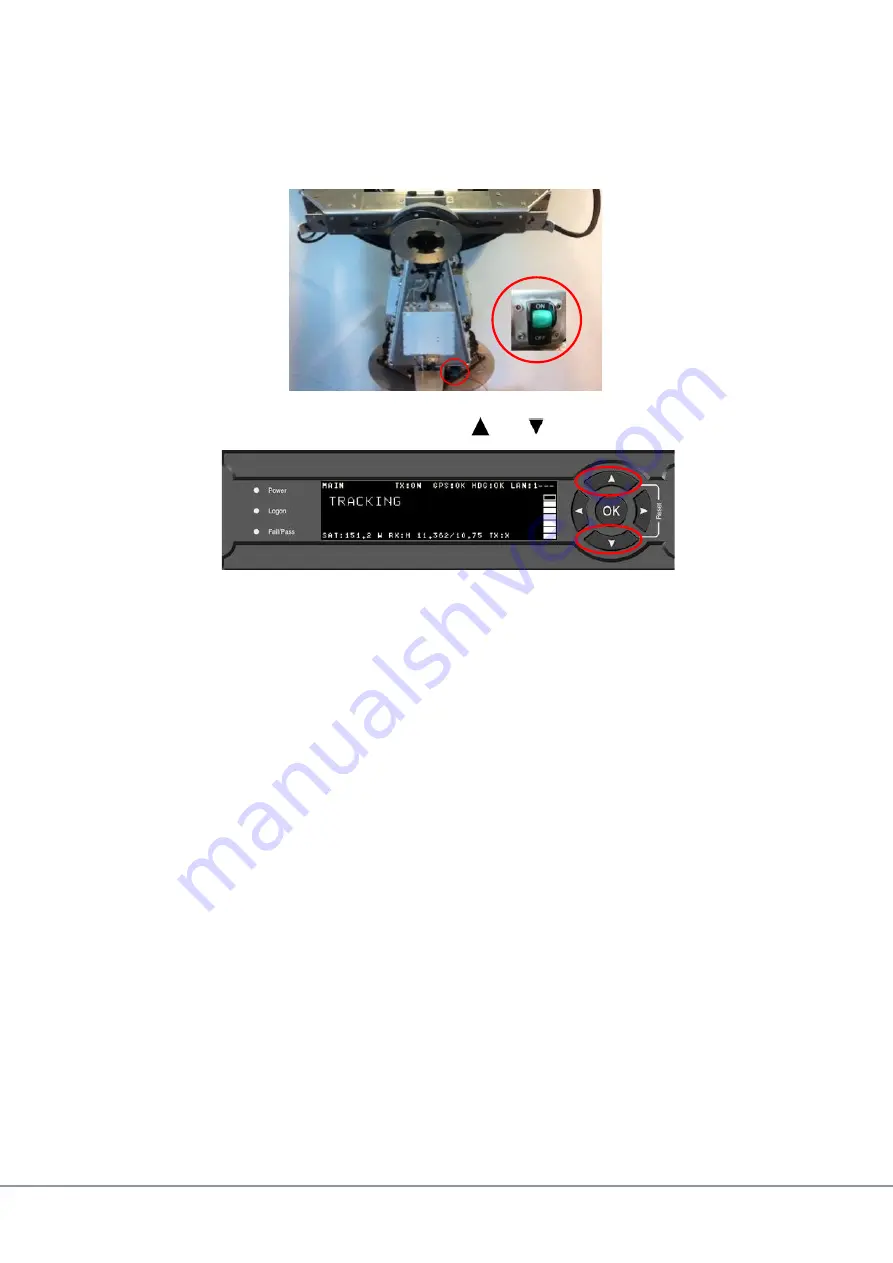
Page 9 of 10
www.cobham.com/satcom
Spare Part Instruction – SAILOR 100, 800 & 900A/B PMM
Document No.: 97-138940-D
Revision: D
Troubleshooting - Verify the Initialization of the Pedestal:
After replacing the defective component re-initialize the pedestal and verify its operation. First switch
off the power to the antenna using the service switch, located on the rear of the pedestal:
Then restart the pedestal by pressing and holding the
and
arrows on the ACU together:
Now view the pedestal through the service hatch and switch on the service switch located on the rear
of the pedestal. Now verify the Initialization process is as follows:
1.
The elevation axis will drive from end-stop to end-stop and then to its zero reference point, with
the reflector at 45 degrees.
2.
The cross-elevation then drives from end-stop to end-stop and then to its zero reference point,
level with the horizon.
3.
Then the azimuth axis drives one direction and then back on itself before settling at its zero
reference point, with the antenna facing away from the service hatch.
4.
A VSAT antenna will then drive the polarization unit from end-stop to end-stop and then back to
its zero reference point, at which point the polarization motor module will be at the highest point,
with the LNB coax cables pointing left. (The TV antenna wont drive its polarization motor until
after the POST).
*Note: Any errors during the Power On Self Test (POST) will make the system go to safe mode,
dropping the ADU power from 48VDC to 20VDC and making the DC-Motor Drive Modules (DDM)
status LEDs illuminate red.
A minor issue with the POST may enable the system to operate, with the Antenna Control Unit (ACU)
displaying a warning. If the Pass/Fail LED is illuminated on the ACU, refer to the error log for further
information.
5.
The system will then go into ‘ready mode’, expecting to get the satellite tracking parameters from
the satellite modem or systems dashboard.
6.
Once the tracking information has been received the system will begin to target the satellite at
which point the TV antenna will drive its polarization motor clockwise into its end-stop to calibrate
itself, before driving to the correct look angle for the desired satellite.
7.
The Above Deck Unit (ADU) then goes from pointing the antenna to then acquiring the signal, and
finally into tracking mode.
8.
Verify the system completed the initialization process correctly and that no errors were flagged by
the POST.










